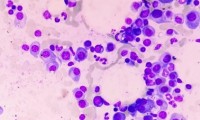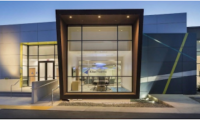-
FDA’s Oncologic Drugs Advisory Committee Recommends Earlier Treatment with Carvykti for Relapsed or Refractory Multiple Myeloma
- Source: drugdu
- 149
- March 20, 2024
-
FDA sets date for high-profile CAR-T adcomm for Bristol’s Abecma, J&J’s Carvykti
- Source: drugdu
- 98
- February 6, 2024
-
FDA Calls for New Safety Warning for the Class of CAR T Cancer Therapies
- Source: drugdu
- 92
- January 25, 2024
-
CAR-T hype faces infrastructure reality check
- Source: drugdu
- 302
- January 17, 2024
-
FDA opens investigation into secondary cancer risk with CAR-T therapies
- Source: drugdu
- 97
- December 1, 2023
-
FDA Launches Probe of Malignancies Linked to CAR-T Therapies
- Source: drugdu
- 113
- November 30, 2023
-
FDA investigates ‘serious risk’ of secondary cancer following CAR-T treatment
- Source: drugdu
- 228
- November 30, 2023
-
Legend exec
- Source: drugdu
- 118
- August 18, 2023
-
Johnson & Johnson, Legend file for expanded use of Carvykti after key trial win
- Source: drugdu
- 106
- June 9, 2023
-
Kite’s CAR-T therapies recommended by NICE for certain blood cancers
- Source: drugdu
- 146
- May 2, 2023
your submission has already been received.
OK
Subscribe
Please enter a valid Email address!
Submit
The most relevant industry news & insight will be sent to you every two weeks.













